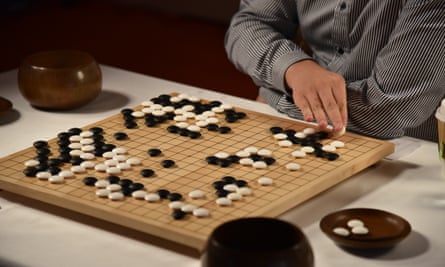Don’t ask Demis Hassabis, the chief executive of Google’s artificial intelligence startup DeepMind, to indulge in mind games before a big competition. “We hope that whatever the result, the power of human ingenuity will be the winner” isn’t the sort of fighting talk that will make an opponent quake in their boots.
Hassabis’ DeepMind is preparing for the bout of its life: a five-game match against Lee Se-Dol, one of the strongest players in the world at the ancient game of Go.
In October last year, the company’s program AlphaGo already achieved a historic milestone, beating Fan Hui, the highest-ranking European player of the game, 5–0. It was the first time a computer had ever beaten a professional Go player in an even match.
But Hui is ranked around 800th in the world before AlphaGo, and is a two dan player (his rank on the “dan” scale of professional players, which starts at one and rises to nine). Lee, by contrast, is a nine dan player, with the second highest number of international titles the game has ever seen.
Because of that marked increase in skill, Hassabis was only prepared to rate AlphaGo’s chance of winning at “around 50%”.
Speaking from DeepMind’s headquarters near King’s Cross station in London, in a conference room named after pioneering logician Kurt Gödel, Hassabis explained that for his company, winning the match isn’t the most important thing. The $1m prize pool that Google has put up for the match will be donated to Go and Stem charities, and Unicef, if DeepMind wins, and win or lose AlphaGo will gain valuable feedback from battling one of the strongest players the game has ever seen – feedback which no one working for DeepMind is able to give it, the machine having outclassed its creators long ago.

Park Chi-Moon, the vice-chairman of Korea’s Go association, injected a note of caution for humanity. “DeepMind said they believe AlphaGo has a 50% chance of winning … we believe they are in fact more confident,” he said.
Lee himself, however, was rather more confident – in his abilities, at least. Standing on stage in Korea, visibly nervous in front of the crowd, he said that “I will not be too comfortable in approaching the challenge, and I will not be too arrogant in my preparation.”
But, he added, the company had had only five months to improve the system since its game against Fan Hui. “Because of the time limits, I don’t think it will be a very close match. I believe it will be 5–0, or maybe 4–1. So the critical point for me will be to not lose one match.”
And there’s a chance he could take the clean sweep. Hassabis acknowledged that the system has a number of weak points, and that part of the reason for the game against Lee was to gain more information on how to improve in those situations. But he wouldn’t go into more detail on what they were, for fear of handing the game to his opponent.
Behind the battle for mastery over Go is a broader aim, though. The game is a perfect testbed for DeepMind’s machine learning techniques, and the same methods by which it mastered Go will soon be put to use improving the voice-controlled assistants on Google’s smartphones, and in the longer term on tackling problems with climate and healthcare modelling – an announcement on the latter of is coming later this week.
The first of the five matches will be played at 1pm Seoul time (4am GMT) on 9 March, with the rest following over the course of the week.
